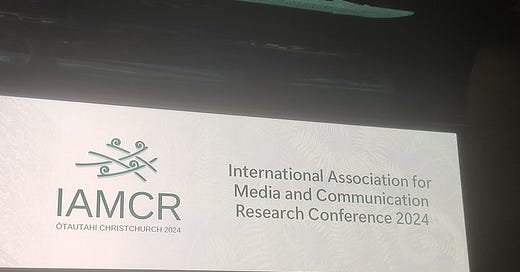The Christchurch Call five years on
The initiative the prevent the spread of terrorist content online is now in its sixth year
The 2019 terror attack in Christchurch led to the Christchurch Call to Action Summit (more commonly referred to as simply ‘the Christchurch Call’) a political summit initiated by then Prime Minister Jacinda Ardern and held in Paris, France just two months after the shootings. Co-chaired by Ardern and French President Emmanuel Macron, the summit aimed to "bring together countries and tech companies in an attempt to bring to an end the ability to use social media to organise and promote terrorism and violent extremism". 17 countries originally signed the non-binding agreement, notably absent was the United States under president Donald Trump (The US later joined the call under president Joe Biden). Eight major tech companies, as part of the Global Internet Forum to Counter Terrorism (GIFCT) consortium, also signed the pledge. 25 commitments were eventually adopted by 56 governments and 19 service providers.
In July I attended the International Association for Media and Communication Research (IAMCR) conference, held in Christchurch for the first time in the organisation’s nearly seven decade history. One session was a panel on the Call, which in May was turned into a foundation, and is now supported by philanthropists and independent from any governments. In the five years since the call was established, the online environment has changed somewhat; algorithms have been modified to reduce the spread of toxic narratives and there has been a much wider roll out of interventions for users at risk of radicalisation. However, challenges remain, such as what Christchurch Call director Paul Ash described as “severely degraded information systems” amd new challenges coming from generative AI.
Zahra Emamzadeh (Senior Advisor Community Partnerships, Migrant and Refugee Education) spoke of the undercurrent of Islamophobia that existed prior to the terror attack, and asked if Muslim communities have returned to marginalisation. Islamophobia has moved to “hidden discourses” around immigration and housing. Hamimah Ahmat, Chair of Sakinah Community Trust (made up of family members of the victims of the 2019 shootings) noted that substantial funding has been provided for technological solutions, but less so to communities.
AUT professor Wayne Hope, who was in the audience, asked Ash how much priority was being given to mapping the far-right space, something the Disinformation Project has been doing. Ash noted that the work done previously was “almost ideologically agnostic” violent content can be defined, but all the hate that leads there is a “grey area”. Another audience member pointed out that the people who commit atrocities like the March 15 massacre are influenced by hate speech “the first step toward ethnic cleansing and genocide”. Ahmat noted that there has been research into the spread of “awful but lawful” content online but this research hasn’t translated into policy, or funding.
The online environment is currently much more hostile than anyone would like. There has been a rise in antisemitic and islamophobic content on social media since the Hamas terror attack of October 7 last year, and Israel’s genocidal response. The Christchurch call is working well for stopping the spread of images and video of violence that radicalised people commit, but the challenge is how we address those first steps to radicalisation, while respecting human rights.




